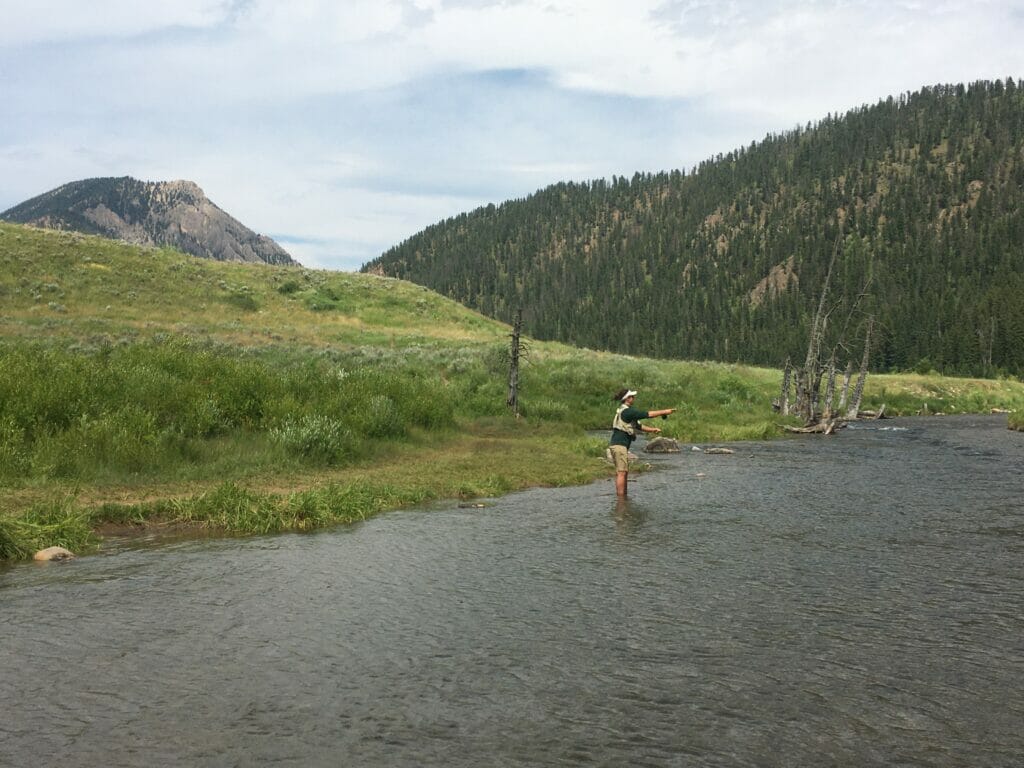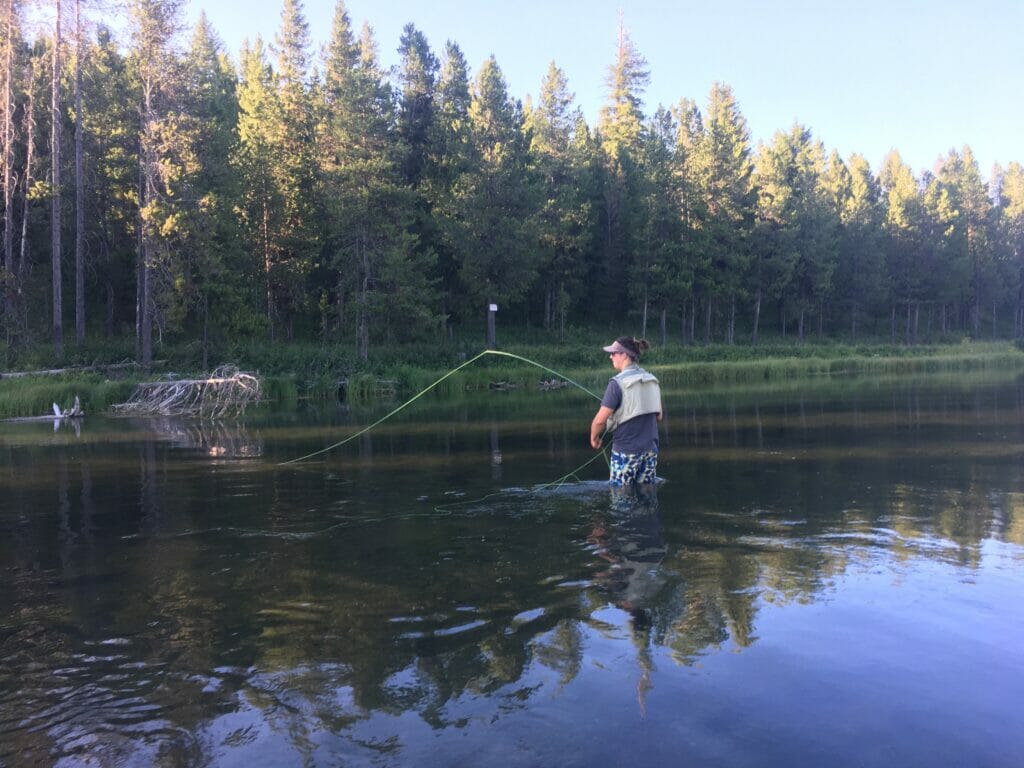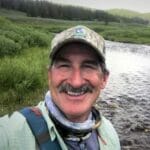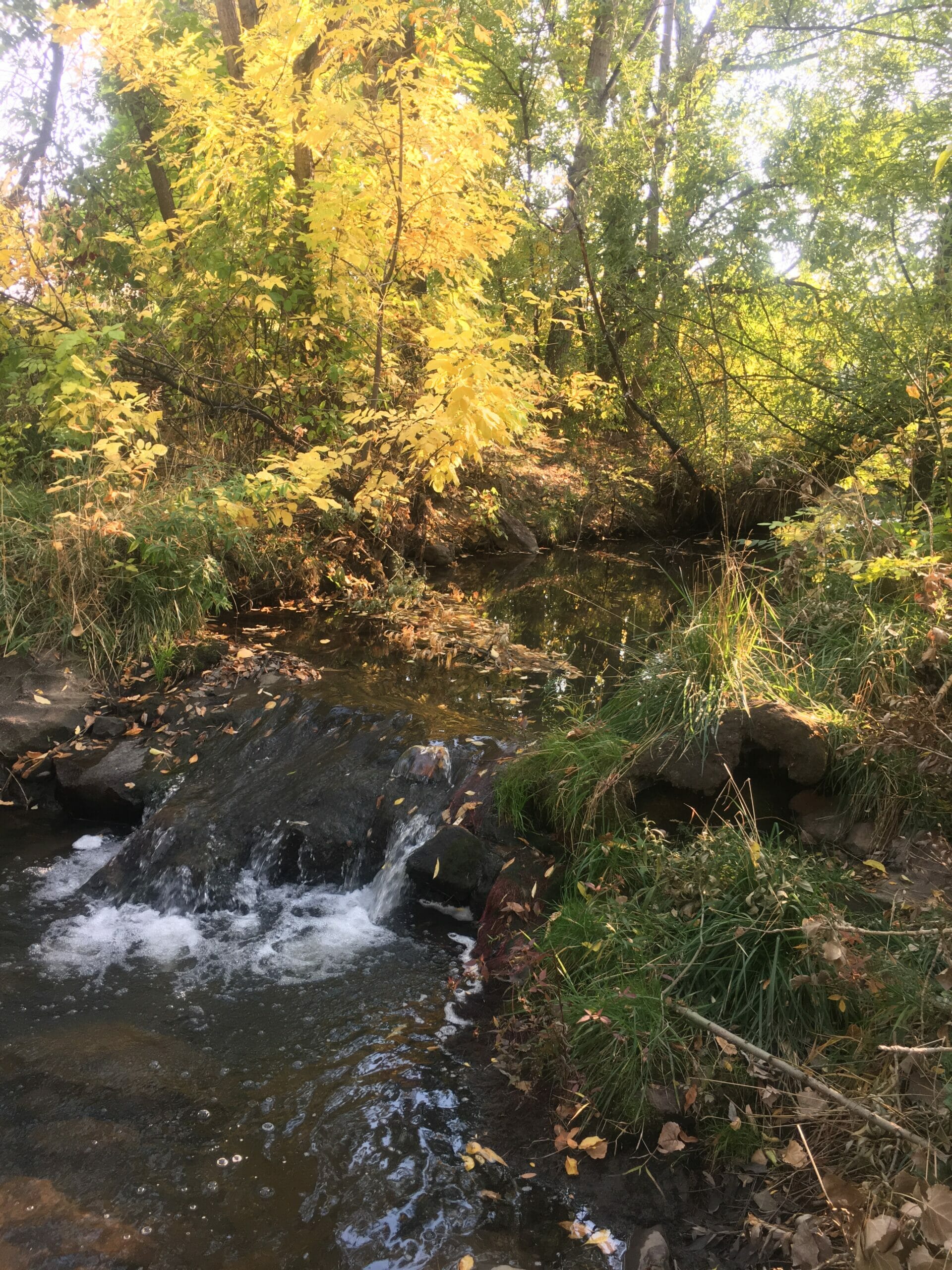Amid the choking fumes of this hellish year, I found hope recently in an unlikely place.
I found it walking a concrete path in a city of over 100,000 souls. Aimless I walked, and aimlessly stopped serendipitously next to a thread of a creek trickling over riprap and steppingstones, as the onset of autumn burnished the leaves of trees whose branches formed a bower over it.
It was in part the sound of this dogged water, making its thin music against the background din of traffic. It was in part the visage of a two-foot long snake, burrowing into the crevices between stones in the creek bed, then extricating its head and burrowing anew into another watery crevice a few feet upstream.
That snake reminded me of another I had seen in the water a few weeks prior, before heat waves and dry lightning ignited millions of acres in the West and caused Air Quality Indices in multiple states to spike to levels that made even stepping outside inadvisable. That other small sinewave—a western garter snake—slid from the bank on Montana’s Madison River as my son and I waded into it and skated away to a more private place, as if stitching a weft into the weave of life.

And that memory returned me to those happy hours I had spent with my son as we fished our way through Idaho, Montana and Minnesota on our road trip in late July.
If you are both a parent and an incorrigible angler, you dare not hope too much that your progeny should find also the same ineffable satisfactions standing in a stream with a rod and reel. Fishing is not my son’s primary passion in the outdoors. But he enjoys it enough to join me from time to time. And that seems a gift beyond measure.
Such times are both precious and worrisome. With my son working water for rising trout near me, I feel more keenly the magic of such experiences—and how different now is the world from that which I grew up in, how much more precarious are our trout, salmon and steelhead fisheries today, how much hotter and drier the weather and Western landscapes.
When I think of 2020, the image that will keep with me is one of a dull red sun boring through thick brown skies raining ash. I feel remorse in bequeathing this world to the next generation, and the ones to follow.

But then I find myself next to a troutless urban creek. It seems improbable, impossible, that as summer pivots to autumn in the Southwest, any rivulet could exist in such a place. It reminds me that nature is resilient, trout and salmon are resilient, if we give them half a chance.
We cannot afford to dally in our provision of such fortunes for our fishy friends. Megafires burning still in California, Oregon, Wyoming and other states can have significant effects on trout streams, and the warming climate makes such events more likely.
Hope, and science-based action, are the antidote. We must boost significantly our efforts to protect and restore coldwater habitats and the watersheds that nourish them. My son, and others who appreciate, in one way or another, streams and the life they provide, are counting on it.



